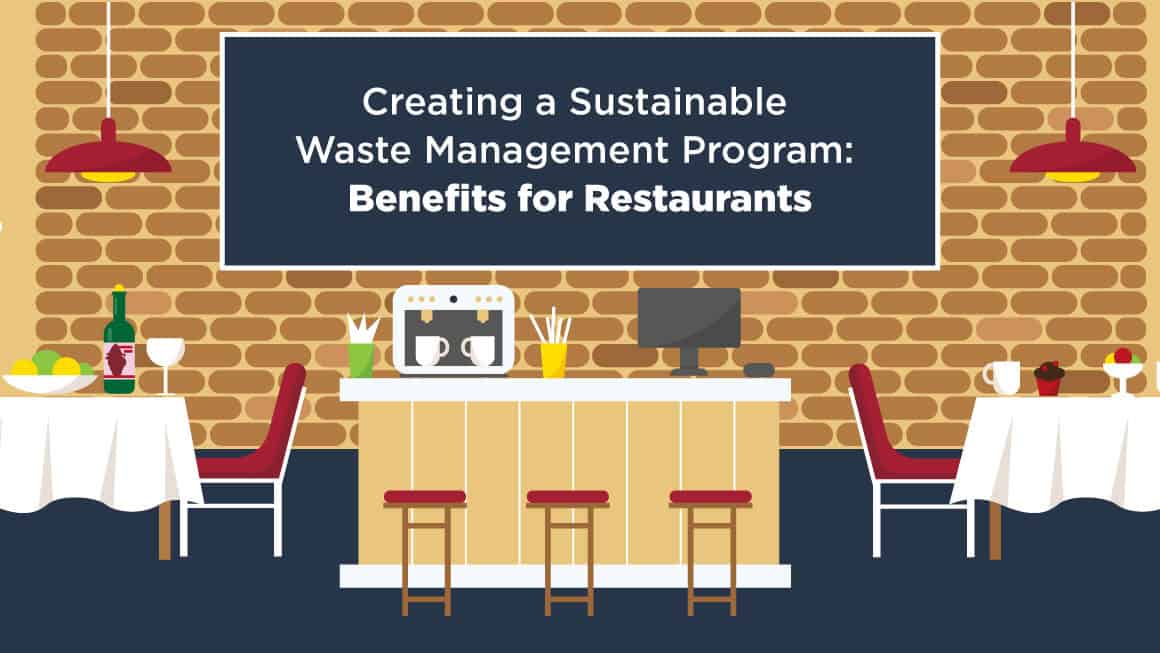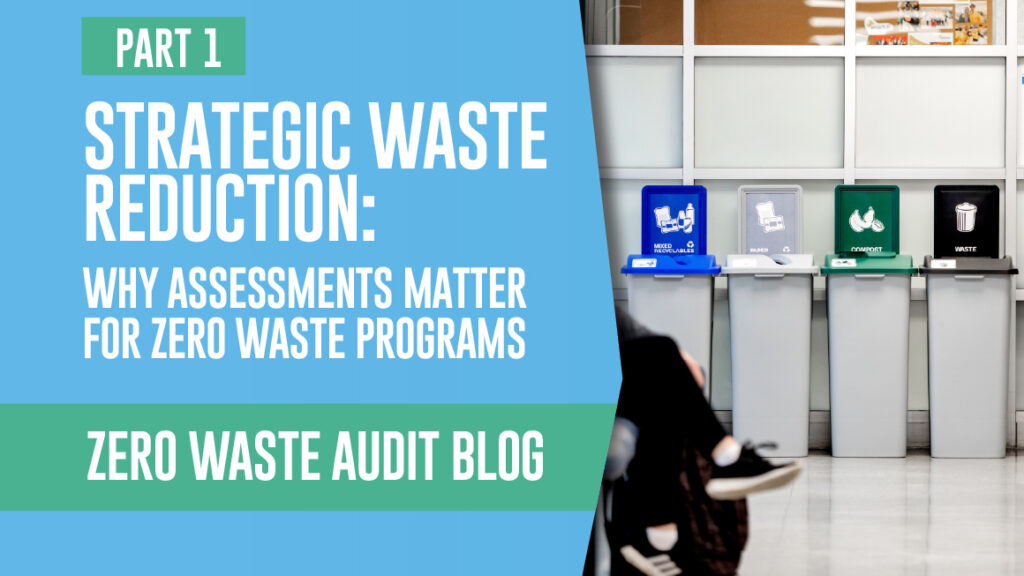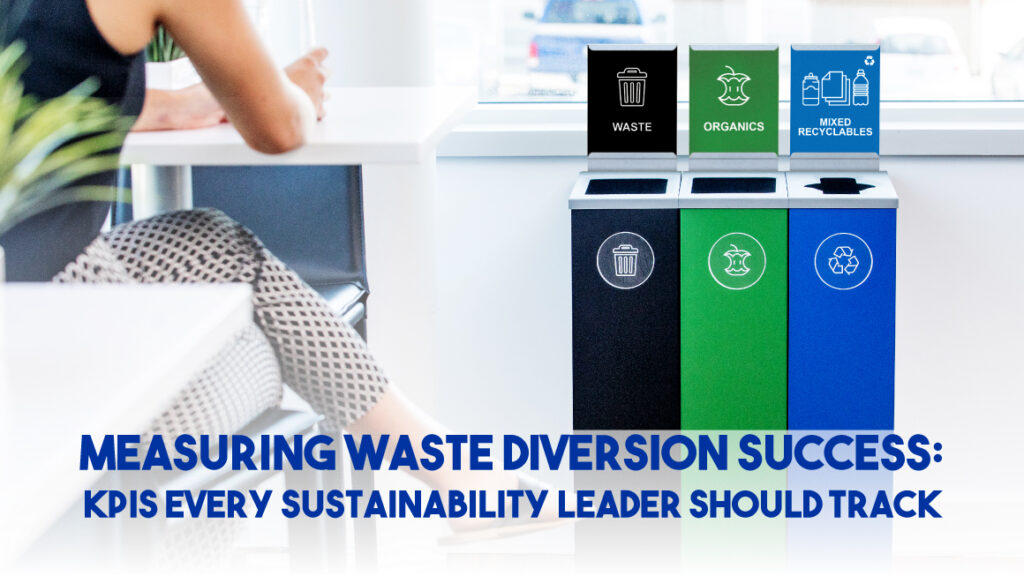The food service industry is a major contributor to daily waste generation. From food packaging and takeout containers to food scraps and organic waste, the sheer volume of waste produced not only impacts the environment but also imposes significant costs on restaurant operations. However, by implementing a comprehensive waste management program, restaurants can turn this challenge into an opportunity. With the right approach, reducing waste is not just about environmental responsibility—it’s about enhancing your business’s profitability, reputation, and community standing.
A successful waste management program goes beyond simply adding recycling and composting bins; it requires a streamlined, easy-to-follow system for both staff and customers. When effectively implemented, these programs can help your restaurant achieve a range of economic, social, and environmental benefits that strengthen your bottom line and position your establishment as a leader in sustainable dining. Here’s a closer look at how transforming your waste management strategy can drive meaningful results.
Economic Impact: Cutting Costs and Creating Value
When considering a new waste management program, it’s natural to prioritize budgetary concerns. Although there may be an initial investment, the long-term financial benefits can be substantial. Here’s how an efficient waste management strategy can actually save money and create additional value:
- Reduced Waste Removal Costs: Waste disposal fees can be a significant expense, especially in densely populated urban areas or remote locations. By diverting paper, plastics, and organics from the regular waste stream, restaurants can cut their waste disposal costs by as much as 50%. While each facility’s savings will vary, the cost of recycling is often offset by lower trash collection fees, making recycling a financially viable option.
- Revenue from Recyclable Materials: Many recyclable materials, such as aluminum, cardboard, and certain plastics, have resale value. Establishing a partnership with a reliable recycling hauler can unlock potential revenue streams and promote a circular economy, where waste is reintegrated into new products.
- Supporting a Healthy Economy: A study by the U.S. Environmental Protection Agency highlights that the recycling industry plays a crucial role in local and national economies. Recycling not only reduces disposal costs but also sustains numerous jobs and drives economic growth. When restaurants invest in comprehensive recycling programs, they contribute to the broader economic benefits of a thriving green economy.
- Enhanced Brand Perception and Guest Loyalty: An eco-conscious image resonates strongly with today’s consumers. Guests are more likely to frequent restaurants that reflect their values, leading to increased traffic and loyalty. According to a National Restaurant Association study, 58% of diners are willing to spend more on sustainable food and restaurants, reinforcing the financial incentive for sustainable practices.
Social Impact: Community Engagement and Guest Empowerment
An effective waste management program doesn’t just benefit the restaurant—it also makes a positive impact on the surrounding community. When restaurants actively prioritize sustainability, they demonstrate a commitment to the environment and social responsibility, which can inspire others to follow suit.
- Building a Positive Community Image: Restaurants that embrace recycling and composting send a powerful message about their dedication to environmental stewardship. This not only positions the business as a responsible community leader but also strengthens relationships with local stakeholders and customers.
- Creating Green Jobs and Promoting Economic Equity: The recycling industry creates significantly more jobs compared to traditional waste disposal. The Institute for Local Self-Reliance reports that recycling and waste processing industries employ 10 times more people than landfill operations. By supporting recycling initiatives, restaurants contribute to local employment and economic resilience.
- Encouraging Responsible Behavior: When guests and employees see recycling and composting efforts in action, it encourages them to adopt similar practices in their daily lives. Setting up well-marked and strategically placed recycling stations throughout the restaurant space fosters a culture of environmental consciousness, prompting staff and patrons alike to dispose of waste responsibly.
Environmental Impact: Reducing Carbon Footprint and Preserving Natural Resources
The environmental benefits of a robust waste management program are profound. By focusing on reducing landfill contributions and maximizing the recycling and composting of organic waste, restaurants can significantly lower their environmental impact and contribute to global sustainability goals.
- Mitigating Greenhouse Gas Emissions: Organic waste, when sent to landfills, emits methane—a potent greenhouse gas that is 21 times more effective at trapping heat than carbon dioxide. Diverting organic materials such as food scraps into composting programs not only prevents these emissions but also reduces the formation of toxic leachate, a harmful runoff that can contaminate soil and groundwater.
- Supporting Soil Health and Reducing Chemical Dependence: Composting converts food waste into nutrient-rich soil, which can be used to enhance landscaping, reduce the need for chemical fertilizers, and improve soil health. This contributes to a healthier ecosystem and promotes regenerative agriculture practices.
- Conserving Energy and Reducing Pollution: Manufacturing products from raw materials consumes vast amounts of energy and generates significant pollution. Recycling these materials requires considerably less energy, resulting in lower carbon emissions and conserving valuable natural resources.
Setting a New Standard for Sustainability in the Restaurant Industry
The shift toward sustainability is more than a passing trend—it is the future of the food service industry. Implementing a comprehensive waste management program allows your restaurant to take a leadership position in this movement, setting a positive example for your community, your customers, and even your competitors.
The key to success is not only developing a clear waste management plan but also educating and engaging both staff and guests. Communicating your sustainability efforts transparently helps build a sense of shared responsibility and commitment to environmental preservation. As a result, you can create a lasting impact that goes beyond your business, helping to foster a culture of sustainability that extends throughout your community and beyond.
When you invest in waste management, you’re not just reducing trash—you’re contributing to a greener future, protecting the planet, and building a legacy of responsible business practices that will continue to pay dividends for years to come.
By embracing a holistic waste management approach, your restaurant can drive significant economic, social, and environmental benefits. As you refine your program, we encourage you to share your experiences, challenges, and successes with the wider community. Every step toward sustainability sets a powerful precedent for the industry, proving that responsible waste management is not just a business decision, but a commitment to a healthier, more sustainable world.
Additional Resources for Your Restaurant Waste Management Program
Another great resource for creating your waste management strategy is our recent webinar: Waste Reduction in Restaurants and To-Go Food Services.
You can also view the recommended Busch Systems recycling containers for your restaurant in this dedicated catalog.
Key Takeaways (TL;DR)
- Restaurants generate a large volume of waste—from takeout containers to food scraps—and switching to a structured waste-management program turns this challenge into an opportunity.
- Economically, diverting recyclables and organics can significantly reduce waste disposal costs, potentially by up to ~50 % in some cases, and even generate revenue from certain materials.
- Socially, implementing visible recycling and composting initiatives helps build a positive community image, engages guests and staff, and contributes to local employment in the recycling ecosystem.
- Environmentally, reducing landfill waste via composting and recycling lowers greenhouse-gas emissions (especially methane from organics), conserves energy, and supports healthier soils and ecosystems.
- For success: it’s not just about placing bins—restaurants must design clear systems, label stations well, train staff, engage guests, and communicate sustainability efforts transparently to build lasting impact.
- Ultimately, a holistic waste-management approach positions a restaurant as a sustainability leader while delivering bottom-line benefits, stronger brand loyalty, and broader community and environmental gains.




